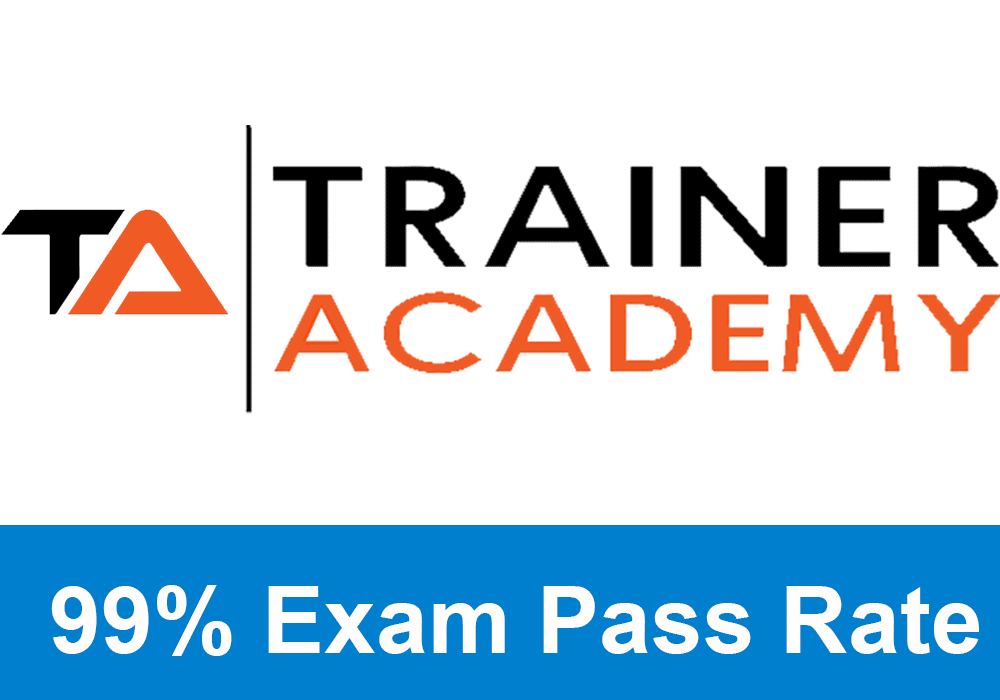If you have not signed up for the NASM FNS yet, you can do so here to save 20%.
If you are unsure which nutrition certification is right for you, I recommend that you take the quiz or check out my article on the top nutrition certifications. This is especially true because the FNS is slightly out of date.
Important definitions to memorize for chapter 12 of the NASM FNS
Aldosterone ~ A endocrine steroid hormone secreted from the adrenal glands that act on the kidneys to control homeostatic electrolyte concentration and water balance. It raises normal blood pressure by promoting the retention of sodium (salt) (and therefore water) and the excretion of potassium ions
Renin ~ an enzyme catalyst made by the kidney that affects blood pressure by catalyzing the conversion of angiotensinogen to angiotensin I
Anions ~ Ions that carry a negative electric charge
Antidiuretic Hormone (ADH) ~ A protein hormone secreted by the anterior pituitary gland. It acts to increase blood pressure and prevents fluid excretion by the kidneys. additionally known as vasopressin
Calmodulin ~ A calcium-binding protein that regulates a range of cellular activities, like cellular division and proliferation
Cations ~ Ions that carry a positive electrical charge
Ciliary Action ~ wavelike motion of tiny capillary-like projections on some cells
Electrolytes ~ Substances that dissociate into charged particles (ions) when dissolved in water or other solvents and therefore become capable of conducting an electrical current. The terms electrolyte and ion are generally used interchangeably
Fibrin ~ A stringy, insoluble protein that is the ultimate product of the blood-clotting process
Heat capacity ~ Of energy needed to raise the temperature of a substance one-degree Celsius
Hydrogen Bonds ~ Noncovalent bonds between hydrogen and an atom, usually oxygen, in another molecule
Hypercalcemia ~ Abnormally high concentrations of calcium within the blood
Exclusive PTP CPT Offers |
||
|---|---|---|
Most Popular Cert | Best Online NCCA Cert | Best Study Materials |
Gold Standard Cert | A Good Option | Best CPT for you?  |
Hypercellular obesity ~ obesity because of an above-average number of fat cells
Hypercholesterolemia ~ The presence of greater than normal amounts of sterol within the blood
Hyperglycemia ~ Abnormally high concentrations of glucose within the blood
Hyperkalemia ~ Abnormally high potassium concentrations within the blood
Hyperkeratosis ~ Excessive accumulation of the protein keratin that produces rough and bumpy skin, most ordinarily affecting the palms and soles, also as flexure areas (elbows, knees, wrists, ankles). It will affect wet epithelial tissues and impair their ability to secrete mucus. additionally known as hyperkeratinization
Hypermagnesemia ~ an abnormally high concentration of magnesium within the blood
Hypernatremia ~ Abnormally high sodium concentrations within the blood because of increased renal retention of sodium or rapid intake of large amounts of salt
Hyperparathyroidism ~ Excessive secretion of parathyroid hormone that alters calcium metabolism
Hyperphosphatemia ~ Abnormally high phosphate concentration within the blood
Hyperplastic obesity (Hyperplasia) ~ obesity due to a rise in both the size and number of fat cells
Hypocalcemia ~ A deficiency of calcium within the blood
Hypoglycemia ~ Abnormally low concentration of glucose within the blood; any blood glucose value below forty to fifty mg/dL of blood
Hypogonadism ~ attenuated functional activity of the gonads (ovaries or testes) with retardation of growth and sexual development
Hypokalemia ~ Inadequate levels of potassium within the blood
Exclusive PTP CPT Offers |
||
|---|---|---|
Most Popular Cert | Best Online NCCA Cert | Best Study Materials |
Gold Standard Cert | A Good Option | Best CPT for you?  |
Hypomagnesemia ~ an abnormally low concentration of magnesium within the blood
Hyponatremia ~ Abnormally low sodium concentrations within the blood because of excessive excretion of sodium (by the kidney), prolonged regurgitation, or diarrhea
Hypophosphatemia ~ Abnormally low phosphate concentration within the blood
Hypothalamus ~ a section of the brain involved in the regulation of hunger and satiation, respiration, body temperature, water balance, and other body functions
Hypotheses ~ Scientists’ “educated guesses” to elucidate phenomena
Hypothyroidism ~ The results of a lowered level of circulating thyroid hormone, with attenuation of mental and physical functions
Insensible Water Loss ~ The continual loss of body water by evaporation from the tract and diffusion through the skin
Ions ~ Atoms or teams of atoms with an electrical charge resulting from the loss or gain of 1 or additional electrons
Major Mineral ~ a significant mineral is needed in the diet and is typically present within the body in massive amounts compared with trace minerals
Trace Minerals ~ Trace minerals are present within the body and are needed in the diet in comparatively small amounts compared with major minerals. additionally referred to as microminerals
Macrominerals ~ Major minerals needed in the diet and present within the body in massive amounts compared with trace minerals
Metabolic Alkalosis ~ an abnormal hydrogen ion concentration (pH) of body fluids, typically caused by very significant loss of acid from the body or accrued levels of hydrogen carbonate (bicarbonate)
Osmolarity ~ The concentration of dissolved particles (e.g., electrolytes) in a solution expressed per unit of volume
Osmoreceptors ~ Neurons within the hypothalamus that discover changes within the fluid concentration in blood and regulate the discharge of vasopressin (antidiuretic hormone -ADH)
Osmosis ~ The movement of a solvent, like water, through a semipermeable cell membrane from the low-solute to the high-solute solution unit; the concentrations on each side of the membrane are equal
Osmotic Pressure ~ The pressure exerted on a semipermeable cell membrane by a solvent, typically water, moving from the facet of high-solute concentration
Oxalate (Oxalic Acid) ~ an organic acid in some foliaceous green vegetables, like spinach, that brings to calcium to create calcium oxalate, an insoluble compound the body cannot absorb
Oxaloacetate ~ A four-carbon intermediate compound in the TCA cycle. acyl CoA combines with free oxalacetate in mitochondria, forming citric acid and starting the cycle
Phosphorylation ~ The addition of phosphate to an organic (carbon-containing) compound. oxidative phosphorylation is the formation of high-energy phosphate bonds (ADP+Pi Æ ATP) from the energy discharged by the oxidization of energy-yielding nutrients
Phytate (Phytic Acid) ~ A phosphorus-containing compound within the outer husks of cereal grains that binds with minerals and inhibits their absorption
Plasma ~ The fluid portion of the blood that contains blood cells and other parts
Renin ~ an enzyme catalyst made by the kidney that affects blood pressure by catalyzing the conversion of angiotensinogen to angiotensin I
Salts ~ Compounds that result from the replacement of the hydrogen of an acid with a metal or a group that acts sort of like a metal
Semipermeable Membrane ~ Membrane that permits passage of some substances; however, it blocks others
Sodium-Potassium Pumps ~ Mechanisms that pump sodium ions out of a cell, permitting potassium ions to enter the cell
Solutes ~ Substances that are dissolved in a solvent
Vasoconstrictor ~ A substance that causes blood vessels to constrict
vasopressin ~ A protein hormone secreted by the anterior pituitary gland. It acts to increase blood pressure and prevents fluid excretion by the kidneys. Additionally known as vasopressin

 Have a question?
Have a question? 





Tyler Read
PTPioneer Editorial Integrity
All content published on PTPioneer is checked and reviewed extensively by our staff of experienced personal trainers, nutrition coaches, and other Fitness Experts. This is to make sure that the content you are reading is fact-checked for accuracy, contains up-to-date information, and is relevant. We only add trustworthy citations that you can find at the bottom of each article. You can read more about our editorial integrity here.